An opportunity to see some treasures from the Whipple Library rare book collection, featuring some of the earliest Western scientific books, works by Darwin, Galileo, Newton and more, and (possibly) the smallest scientific book ever printed… This event will take place in the Whipple Library.
You can view upcoming events here.
-
27Mar '25
-
27Mar '25
An opportunity to see some treasures from the Whipple Library rare book collection, featuring some of the earliest Western scientific books, works by Darwin, Galileo, Newton and more, and (possibly) the smallest scientific book ever printed… This event will take place in the Whipple Library.
-
27Mar '25
-
26Mar '25
Join us for a rereading of Carl Linnaeus’s 1732 diary of a trip through Northern Scandinavia. In the summer of 1732, the Swedish medical student Carl Linnaeus (1707–1778) travelled through Northern Scandinavia. His diary of that journey has been celebrated as pioneering modern scientific and ethnographic fieldwork.
-
26Mar '25, 25, 25, 25, 25, 25, 25, 25, 25, 25, 25, 25, 25, 25, 25, 25, 25, 25, 25, 25, 25, 25, 25
We’re thrilled to announce the return of the Bridging Binaries LGBTQ+ Tours at the Whipple Museum!
-
26Mar '25
Growing up in Blowing Rock, North Carolina, a rural Appalachian town with a population of just over 1,300, Health, Medicine, and Society, MPhil student Caroline Hoover saw firsthand how social issues like health care access disproportionately affected her community.
-
19Mar '25
We’re thrilled to announce the return of the Bridging Binaries LGBTQ+ Tours at the Whipple Museum!
Wednesday 19 March, 2.30pm.
-
15Mar '25
We’re thrilled to announce the return of the Bridging Binaries LGBTQ+ Tours at the Whipple Museum!
Saturday 15 March, 10.30am.
-
15Mar '25
We’re open on Saturday 15 March from 10am – 4pm, and we’re excited to welcome you!
Events happening on the day:
-
15Mar '25
Join us for a special Saturday workshop on 15 March led by artist James Tunnard, where we'll dive into the magic of colour and light.
As you may have heard, we’re creating a new art installation for the Learning Gallery ceiling and the activities in this workshop will inspire and contribute to this exciting piece!



